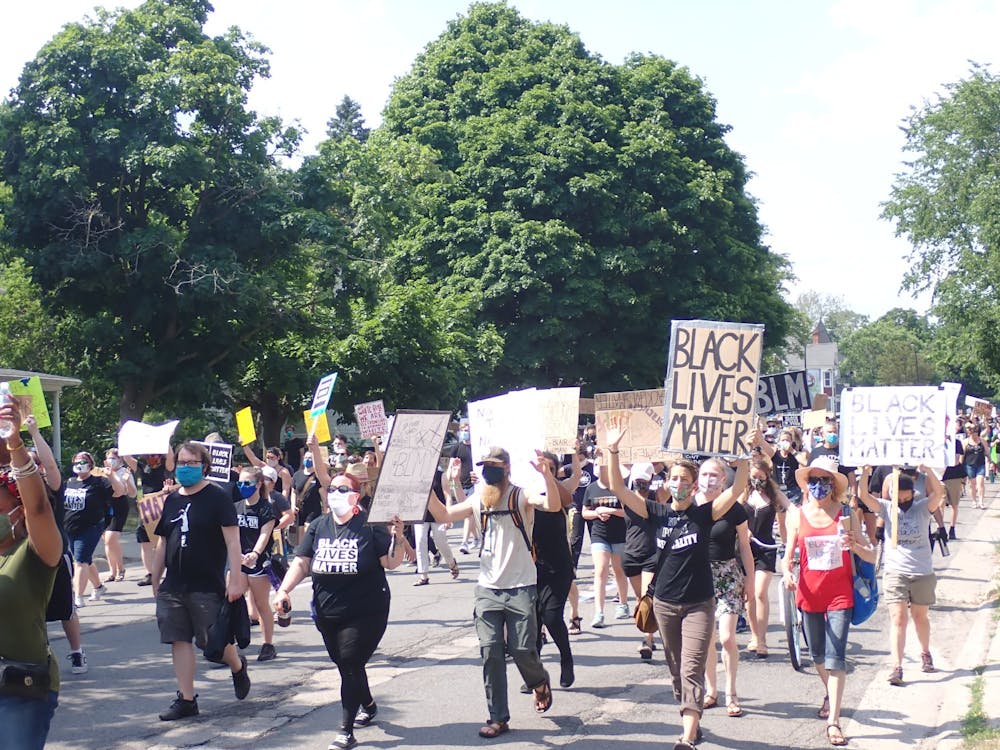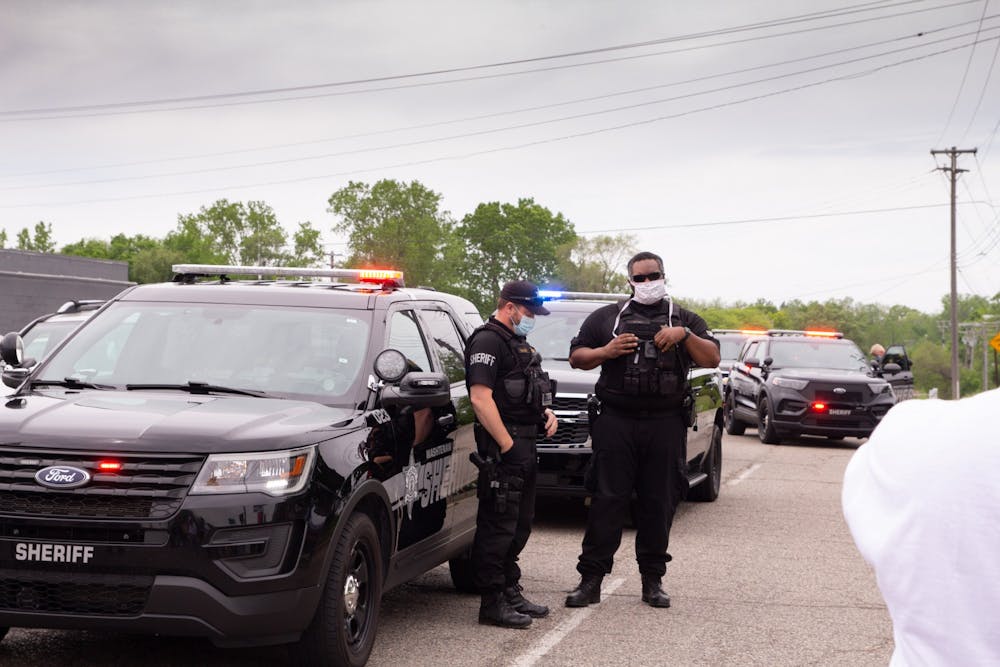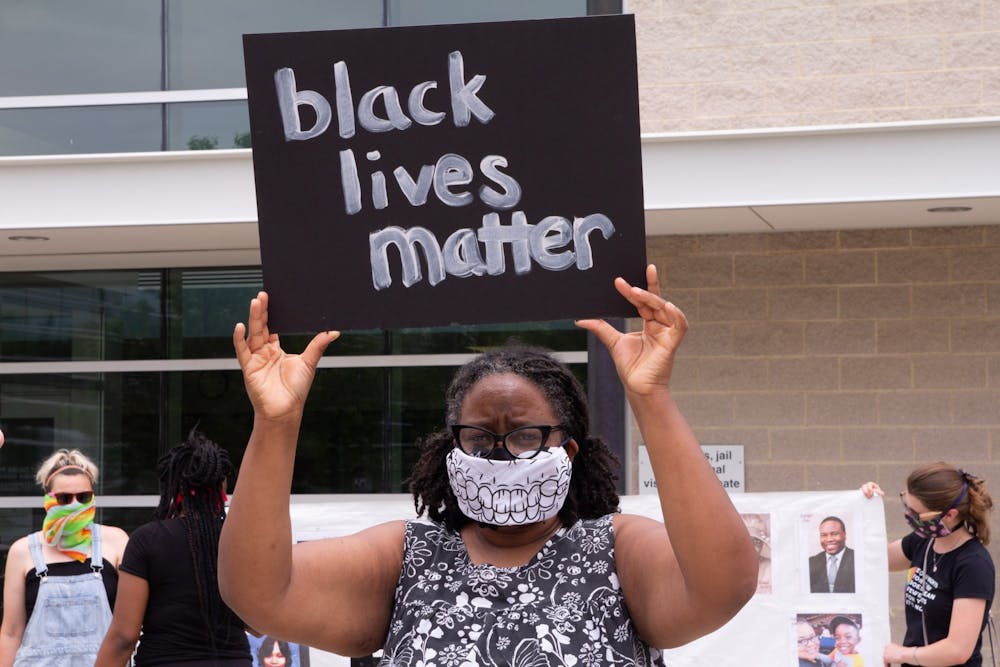Senator Jeff Irwin spoke to The Echo regarding Senate Bill No. 945 (SB 945) that was recently passed unanimously in the Michigan Senate. An identical bill from Rep. Ronnie Peterson awaits a vote from the house.
The bill requires that all police officers, new and current, receive training on implicit bias and violence de-escalation techniques, as well as take a mental health screening, as a part of their initial training and certification.
The bill would also establish continuing reeducation requirements for police officers, which is the first such state requirement. Police officers would be required to complete 12 hours of continuing education credits in subjects related to law enforcement starting in 2022, and 24 hours every year starting in 2023.
According to Irwin, the longer implementation date in 2022 is related to securing additional funding for the continuing education credits. However, Irwin said the Michigan Commission on Law Enforcement Standards (MCOLES) has the ability to begin the mental health screening, implicit bias training, and violence de-escalation techniques upon initial training and certification more immediately.
Irwin said that many police departments across the state already implement de-escalation and implicit bias training but that it can be an issue of funding. This bill would require and fund such training at the state level.
As of yet, there is no estimated amount for the funding needed. Legislators and law enforcement groups are working to estimate that amount as their budgeting process for the fiscal year is just starting.
Irwin also noted in his testimony that he did not begin working on this bill as a result of the most recent tragedies such as George Floyd’s death, but began around the time Michael Brown was killed by a police officer in Feguson, MO six years ago.
Irwin said that part of the reason the bill took six years to get where it is now is that he was out of the legislator for two years. Irwin served 2015 and 2016 and at that time he worked on the bill. He then returned in 2019 and worked on it through the year.
“It is always frustrating to me how long it takes to get a bill from idea to something that I’m proud to introduce but it does kind of take some time,“ Irwin said. "The reason for the lag, in this case, was I was not in office for two years,”
Irwin also told The Echo that this bill is “a small, necessary, but not sufficient step, towards the sort of action that the public is demanding from our police.”
In terms of future steps, Irwin told the Echo that his “four pillars” are citizen oversight, independent investigations of police misconduct, demilitarization of the police, and improved training and mental health screening. These “four pillars” are based on research from Campaign Zero.
“The training one was one that I had all polished and ready to go because… this is something that I think I can get my conservative colleagues to agree with,“ Irwin said. "I’m interested in making positive change even if it’s only a portion of the positive change we need."
“Now when it comes to where our public investments are made, I have been saying for many, many years that we need to transition to a system where we’re investing more in meeting the basic needs of our citizens with social workers and with mental health support rather than with badges and guns. It’s just not the most effective in terms of reducing crime and public safety and it’s an expensive and failed proposal. So I’m very interested in moving things in that direction and working on both the internal police culture but also working on the budget so that we can allocate a greater sum of dollars to prevent these types of problems from occurring from preventing people from getting into a desperate situation whether it's with their personal finances or with addiction.”

Protestors gather in downtown Ypsilanti for a Black Lives Matter Protest on Saturday June 20, 2020. Protestors listened to speakers outside of the Ypsilanti District Library on W. Michigan Ave. prior to marching. Photo courtesy of Casey Field/Casey Field Photography.
The bill is opposed by the Michigan Association of Chiefs of Police (MACP) for multiple reasons according to their Executive Director, Robert Stevenson.
“It is important that people recognize we are not in opposition to training," Stevenson said. "However, Senate Bill 945 is not needed because the majority of the training that they’re talking about is already being conducted. Also, once you put a curriculum into law, when something better comes along which it often does, it will require us to go back and get the legislators to agree to change the curriculum. A lot of what we do is fluid. What’s a prime training method and accepted training method today may not be a training method that’s accepted and such tomorrow… We’re not against training the police, we’re very much advocates of the training of police."
Stevenson said another reason the MACP is in opposition is that he believes MCOLES should “be the ones making the decisions” about police training curriculum “because they are the experts.”
Stevenson told The Echo that another reason for opposition is that “the training is only directed at recruits,” and that more funding needs to be directed to current officers’ training. However, the mental health screening, de-escalation techniques, and implicit bias training is required for new and current police officers to complete once to keep/earn their certification starting 2022. The continuing education credits are a requirement for all officers as well.
The MACP is working with the bill’s sponsors to request modifications such as eliminating Attorney General oversight from the bill and replacing it with MCOLES oversight as well as allowing some “leeway” in changing the curriculum.
Irwin believes the opposition from law enforcement members may be an obstacle in implementation but adds that “there is a lot of support among police for this.” The bill has support from the Michigan Sheriff’s Association (MSA), the Police Officer’s Association of Michigan (POAM) and Washtenaw County Sheriff Jerry Clayton.
“... I think it’s shameful that the legislature has to mandate what I believe to be basic training," Clayton said. "This is, and no disrespect to Senator Irwin because it’s the thing to do, but this is low-hanging fruit. And this is training [the Washtenaw County Sheriff’s Office has] been doing for five years. So these are basic skill sets that you expect your men and women on the street to have because it’s the tools that they’re using the majority of the time… My hope is that the bill is passed, it becomes foundational."
“Another thing we need to keep in mind is the bill requires new candidates to be police officers to attend the training and requires veteran police officers to attend the training, but only once. These training efforts need to be repeated every year, especially implicit bias. Implicit bias is a subject that you have to grow with and evolve with and a one-time exposure to the concept and the strategies for mitigating implicit bias is not nearly enough. So I applaud [the bill], happy to support it, it puts us on the right path, but we have a long way to go and the profession needs to take the lead to go beyond when it’s established [at the state level].”
The MSA told the Echo they initially opposed the bill, but after amendments were made to the bill assuring funding at the state level, the MSA voiced support.

Black Lives Matter protestors march on Hamilton St. in Ypsilanti, Saturday, June 20, 2020. Photo courtesy of Casey Field/Casey Field Photography.
“I think that [this bill] is something that should have already been done because honestly, I’m a little past the police reform stage…“ Desmine Robinson said, a long-time Black Lives Matter activist. "I think they’ve had a lot of time to get their stuff together. I think we had a lot of instances when Black people, unarmed Black people, non-violent Black people have been killed, senselessly, and nothing’s been done."
Robinson organized various Black Lives Matter protests on EMU’s campus. He is also a Black student leader at EMU, an advocate for mental health, an undergraduate commissioner for the President's Commission On Diversity and Inclusion, and has a degree in psychology.
Robinson questioned increasing police funding for training and advocates for divesting from the police and investing in other public services.
Robinson later said that if re-education and continuing education is the direction the legislature is taking, the education should be culturally and historically informed, and have “practical tools” throughout. He also questioned the purpose of mental health screening.
“Why do you want to give the officers a mental health screening?” Robinson said. "Do you think that officers who have depression or bipolar attitudes are going to be violent on the streets? Do you think that people that are applying to the job are not mentally fit? [The mental health screening] just raises some questions for me."
He also said that he hopes the mental health services for officers will be consistent, supportive, and go beyond the screening itself if mental health support for officers does become the next course of action.
“We need to invest less money in officers now, we need to put money more in our education, our mental health services, and after school programs," Robinson said. "You know, things that keep people happy… And our infrastructure and stuff like that because people don’t commit crimes because they’re bad people, they commit crimes because they’re in tough situations."
Robinson went on to say that he continues to have good relationships with many individuals in law enforcement including Sheriff Clayton and has even invited EMU’s Department of Public Safety to his BLM protests in the past to start a “dialogue” and encourage law enforcement to stand in solidarity with the protestors. However, he expressed regret for that approach as he felt it ignored the trauma the Black community has from policing then reiterated that he is past police reform and believes that now is the time to divest from police and invest in other public services.

However, Clayton is not in favor of this divesting approach.
“... when people say ‘defund the police’, what do [they] mean by that?” Clayton said. “...I think this is not a time to start talking about reducing funding, taking funding from one source and putting it to another source, this is about how do we invest strategically and smartly; which means more investment…They’re talking about passing legislation for more training and then on the other hand you’re talking about reducing funding to police.
"And when you reduce funding to police, oftentimes the first thing that goes is training so there’s a total disconnect in the message,“ Clayton said. "So we have to step away from the rhetoric, let’s get serious, let’s sit down on equal footing, shared power so there’s no power disparity between government and the people, and roll up our sleeves and start the hard work of constructing the kind of society and governmental architecture that we desire to get us to the outcomes we want."
Robinson spoke in reference to his past approach of a dialogue to enact police reform, similar to that of Clayton’s.
“... lately, I’ve just been feeling so pessimistic about that approach,“ Robinson said. "I’ve been trying to find hope in that again but it’s hard because we’ve made so little progress in so much time. The only thing that’s changed is that, or at least that it seems, is that more Black, innocent people have been killed and more Black families are mourning them... It’s complicated for me... but right now I’m coming to a consensus that I want to talk about how we can utilize resources that we spend on the police department on other things like infrastructure, education, mental health, things that help people because more police officers don’t stop crime.”

Both Irwin and Robinson hope the growing attention to the BLM movement will spark real change. Irwin, Clayton, and Robinson all expressed that there is more to be done beyond this specific bill. However, each of them has a different path in mind to reshaping and improving law enforcement as we know it.
You can read the full text of the bill here and as it was passed by the Senate here.









